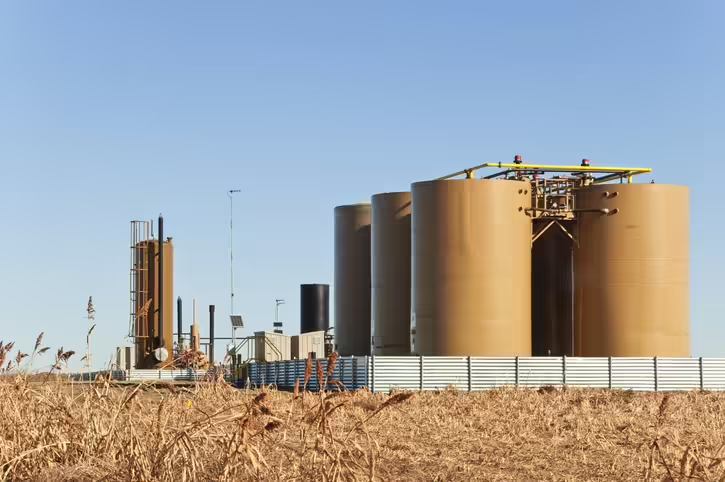
Undefeated Texas Plant Explosion Lawyers
Officials in Martin County, Texas, are working to determine exactly what led to a deadly tank battery explosion at a saltwater disposal site operated by Junction Resources yesterday afternoon.
The blast tragically killed a worker and left three others critically burned, one of whom is represented by Zehl & Associates.
Junction Resources Explosion Erupted Near Howard County Line
The explosion erupted shortly after 9:30 a.m. at Junction Resources’s “Catfish” disposal well located along Farm-to-Market Road 846 in the community of Knott, near the Howard County line.
One witness reported four loud booms coming from the site, telling NewsWest 9 that the explosion felt like an earthquake. Fire departments from Martin, Ackerly, Lenorah, Stanton and Howard counties worked for several hours to extinguish the resulting fire.
Martin County Sheriff Brad Ingram confirmed that a worker had died in connection with the Junction Resources explosion. All three survivors were rushed to the hospital, including one worker who was airlifted.
Junction Resources Lawsuit: Hot Work Operations Were Being Conducted
Junction Resources maintains offices in Dallas and Big Spring, Texas, and has been serving Martin County since 2019. The company specializes in developing water wells, water storage pits, pipelines, and saltwater disposal wells.
According to the lawsuit filed by Zehl & Associates on behalf of one injured worker, the Junction Resources explosion erupted as hot work, including welding operations, was being conducted at the saltwater disposal well and nearby tank battery. The ongoing work also included crane operations, which were used to secure the tank battery apparatus in place during the hot work activities.
Several companies were on-site at the time, including an H & P Logistics employee, one of the burn victims.
Common Causes of Tank Battery Explosions
Explosions and fires involving the above-ground storage tanks used at saltwater disposal sites and other oilfield operations are often related to improper maintenance, system failures, environmental factors, and human error:
Vapor Accumulation
Vapors can accumulate in an above-ground tank, particularly if the pressure relief system fails or isn’t well-maintained. When gases aren’t safely vented, they can reach critical pressure levels, leading to explosions. Even residual vapors lingering in an empty tank can trigger an explosion if they come into contact with an ignition source.
Electrical Sparks or Static Discharge
Electrical equipment near a tank battery, faulty wiring, or even static electricity generated during the filling, emptying, or cleaning of tanks can ignite flammable vapors. A small spark is enough to trigger an explosion if these vapors have accumulated in the air around a tank battery.
Equipment Failure or Corrosion
Aging or poorly maintained equipment, including valves, gauges, and pressure relief systems, can fail and lead to the release of highly flammable materials. Corrosion within the tanks or connecting pipes can lead to leaks, allowing oil or gas to escape, creating an explosive atmosphere.
Human Error
Mistakes made by workers during routine maintenance, filling, transferring, or cleaning operations can lead to disaster. For example, closing a valve improperly, using incompatible equipment, or ignoring warning signs of pressure buildup may lead to an explosion. All too often, these avoidable errors occur because the oilfield company failed to provide workers with the training needed to safely perform their jobs.
Inadequate Venting Systems
Storage tanks require adequate venting to release vapors safely. If venting systems are undersized, blocked, or malfunctioning, pressure can increase within the tanks, along with the risk of an explosion.
Nearby Fire or Heat Sources
Open flames, sparks from hot work (like welding or cutting), and even high-temperature equipment in close proximity to a tank battery can trigger an explosion if they make contact with volatile gases.
Weather Conditions
Extreme weather conditions can lead to temperature swings, causing tank materials to expand and contract. This can stress the structural integrity of the tanks and lead to leaks or ruptures. Higher temperatures also increase vapor pressure inside tanks, increasing the risk of an explosion. Without proper grounding or lightning protection systems, a direct light strike can ignite any flammable gases that have accumulated in and around a tank battery.
Improperly Sealed Tanks
If storage tanks are not properly sealed, volatile substances can leak from the seams, valves, or fittings. Leaks can lead to the formation of vapor clouds around the tanks, increasing the potential for an explosion or fire.
Chemical Reactions
Certain reactions between chemicals or contaminants can lead to spontaneous ignition, particularly if the tanks aren’t monitored or cleaned properly.
Junction Resources Explosion Lawyers: Call 1-888-603-3636 for a Free Consult.
Our Undefeated Texas Explosion Lawyers are investigating the Junction Resources explosion and will post an update if new information becomes available.
In addition to being undefeated, we’ve recovered billions for thousands of oilfield workers throughout Texas and across the United States and consistently win record-setting verdicts and settlements – including the #1 Largest Oilfield Burn Settlement in History – against the biggest oilfield operators and servicing companies in the country.
If you were hurt or lost a loved one to an oilfield accident or explosion, please call 1-888-603-3636 or click here to fill out our confidential contact form.
We’ll take the time to answer all of your questions, explain your legal rights, and ensure you have the information you need to make the right decision for your family.
The consultation is free, and because we only work for a contingency fee, you won’t owe us anything unless we win your case.
Zehl & Associates Injury & Accident Lawyers – Houston
2700 Post Oak Blvd #1000, Houston, TX 77056
(888) 603-3636
29.73890263937774, -95.4612824423294
Open 24 hours

Zehl & Associates Injury & Accident Lawyers – Midland
306 W Wall St Suite 701, Midland, TX 79701
(432) 220-0000
31.99827039117601, -102.07752974593966
Open 24 hours